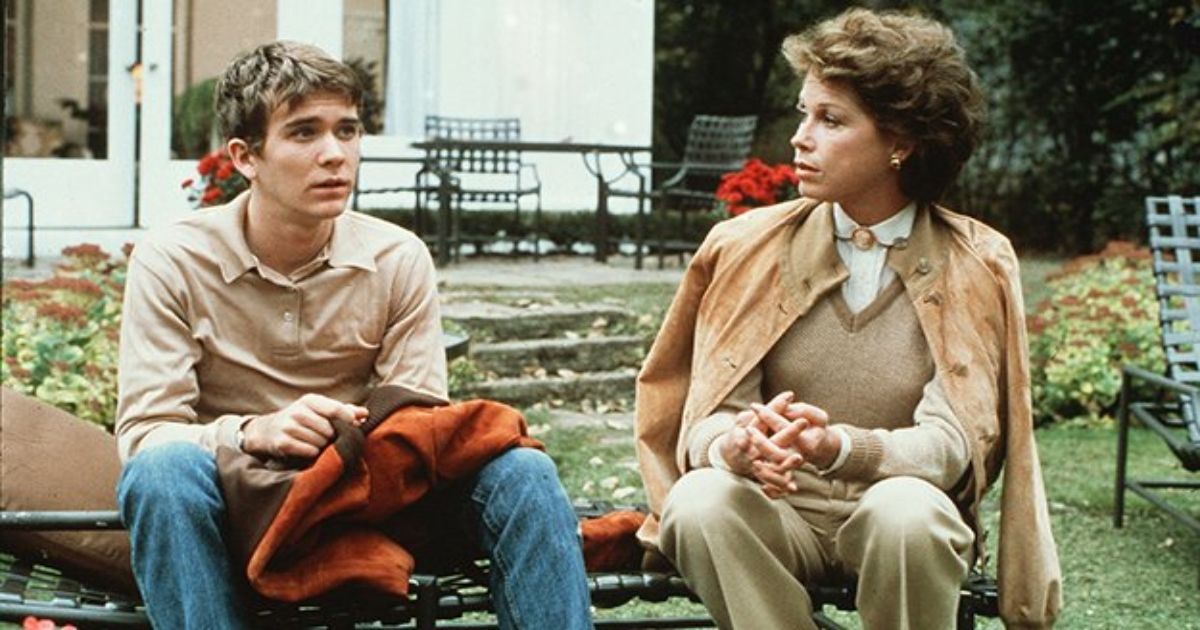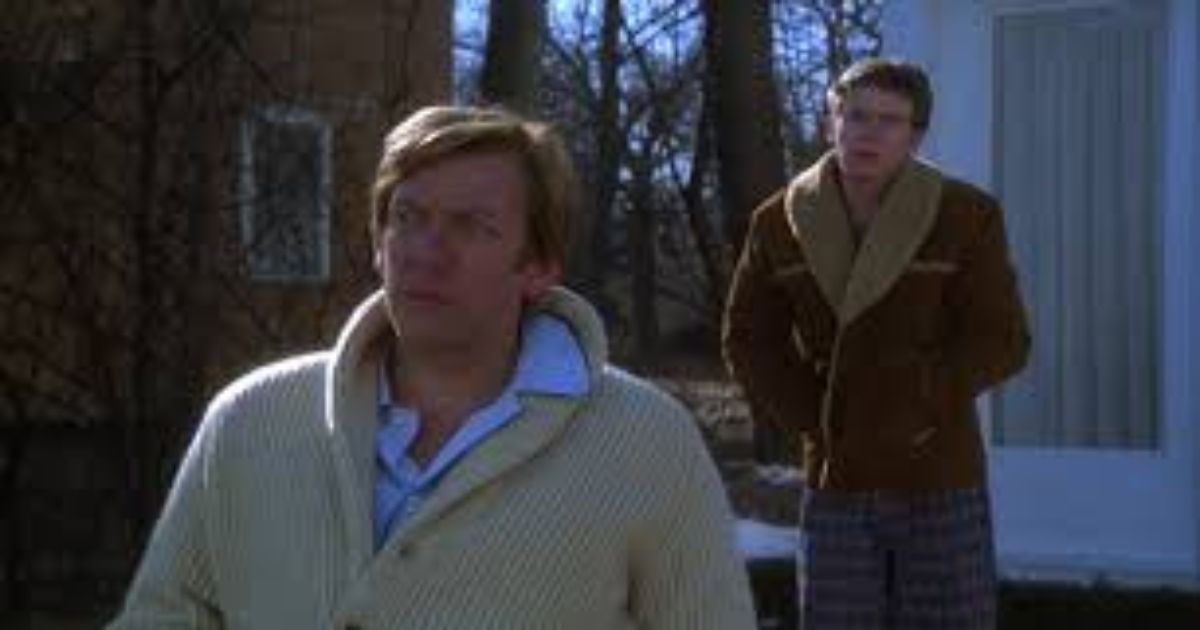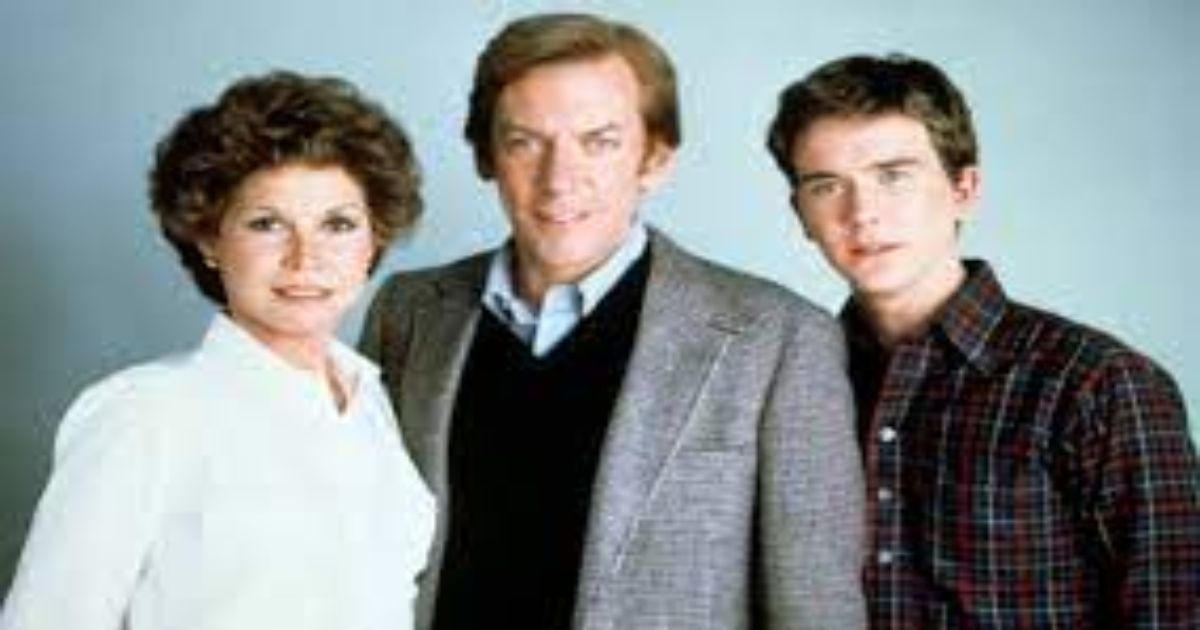Despite being in the top ten highest-grossing films of 1980, Robert Redford’s acclaimed family drama Ordinary People has been largely overshadowed throughout the decades to follow. Perhaps now the film is most remembered for notoriously “snubbing” Scorsese’s Raging Bull at the 1981 Oscars, despite the film’s widespread critical and commercial acclaim at the time. 1980 also saw the rise of many other films that have left an indelible mark on our culture, such as The Empire Strikes Back, The Shining, Airplane!, and Friday the 13th. While there has never been a time when family dramas weren’t popular, they don’t always leave as much of a lasting mark on us as their spookier or more action-driven counterparts.
Ordinary People is based off of the eponymous 1976 novel by Judith Guest, which won the Janet Heidinger Kafka prize upon publication. The story follows the Jarrett family, upper-middle class, supposedly very well-to-do people, as they cope with the aftermath of their son’s tragic death. The film is told through the perspective of their surviving son, Conrad, who has recently attempted suicide in the wake of his brother’s passing. Conrad is deeply alienated from his family and the rest of his reality, and we follow him on a touching journey through anguish and reconnection alike.
Real, unflinching, and timeless in both theme and execution, Ordinary People won three Oscars and five Golden Globe Awards upon its release. However, it certainly does not receive as much attention in the public eye as it deserves, as a gem of authentic, beautifully acted, and hauntingly resonant filmmaking.
Career-Defining Performances All Around
What makes Ordinary People a truly special film is its unforgettable performances across the board. For his performance as teenaged protagonist Conrad, Timothy Hutton took home the Oscar for Best Supporting Actor, becoming the youngest person to ever win in that category. Mary Tyler Moore was also nominated in the Best Supporting Actress category for her isolating performance as Conrad’s cold, embittered mother. Donald Sutherland and Judd Hirsch received Golden Globe nominations, as well.
These actors’ performances are all the more memorable because, for many of them, serious dramas were far from what they had been used to or known for. Mary Tyler Moore was and is still known as a bubbling comedic titan, remembered particularly for her roles on the Dick Van Dyke Show and the generation-defining Mary Tyler Moore Show. Judd Hirsch, who plays Conrad’s trustworthy therapist, was most known for his star role in the ‘70s sitcom Taxi. Meanwhile, Sutherland was just beginning to establish himself as a more serious actor after having starred in M*A*S*H, and the film represents Hutton’s feature debut. Ordinary People definitely might have fallen into the traps of mediocrity were it not for the spellbinding performances by all of these talented actors.
Authentic, Groundbreaking Portrait of Mental Health
By 1980, the list of films surrounding mental health issues contained entries like One Flew Over the Cuckoo’s Nest and A Streetcar Named Desire. Although either of these films are undeniably classics, it’s safe to say that mental health had rarely been portrayed within the context of, well, ordinary people in cinema at the time. In response to this troubling pattern, Redford’s film relentlessly defies the stigma that those struggling with mental health issues are some sort of “outsider” to be ostracized by society, ripe for a Hollywood picture made about them. In Ordinary People, we see how an entire family might appear so normal on the surface, but that this ultimately gives way to their own quiet disintegration.
Mental health experts have also commended the film on its accurate depiction of psychological disorders within its characters. Psychologist Julia L. Hall wrote of Moore’s character, that she is a “classic narcissist, scaffolding gaping emptiness with a persona of perfection.” It is quite a rarity to see such characters struggling with mental health or psychological issues explored in such a fully-realized manner. While today’s films have grown all the more experimental in their forays into mental health, nothing is as effective as Ordinary People's depiction of what it's like to struggle in real life, in real time.
Redefining the Family Drama
Whereas other films of this genre can be an exercise in excess and melodrama, Ordinary People is rendered perfect by its use of subtlety and restraint. Its characters do not cry or scream at each other; rather, what’s important exists in silence and tension. Like during dinner, at a perfectly set table, where no one talks, and Sutherland occasionally darts a nervous smile at his slouched-over son.
As in other masterful films of the genre, such as Kramer Vs. Kramer and Breaking Away, Redford does not so much rely on events, but rather on his characters to tell this story. This also means that, by the end of the film, these characters are not necessarily done growing. The movie has no end for them, but only a beginning. Redford's film opens up a whole new world of exploration within the conventions of what makes and breaks the American family.



.jpg)
